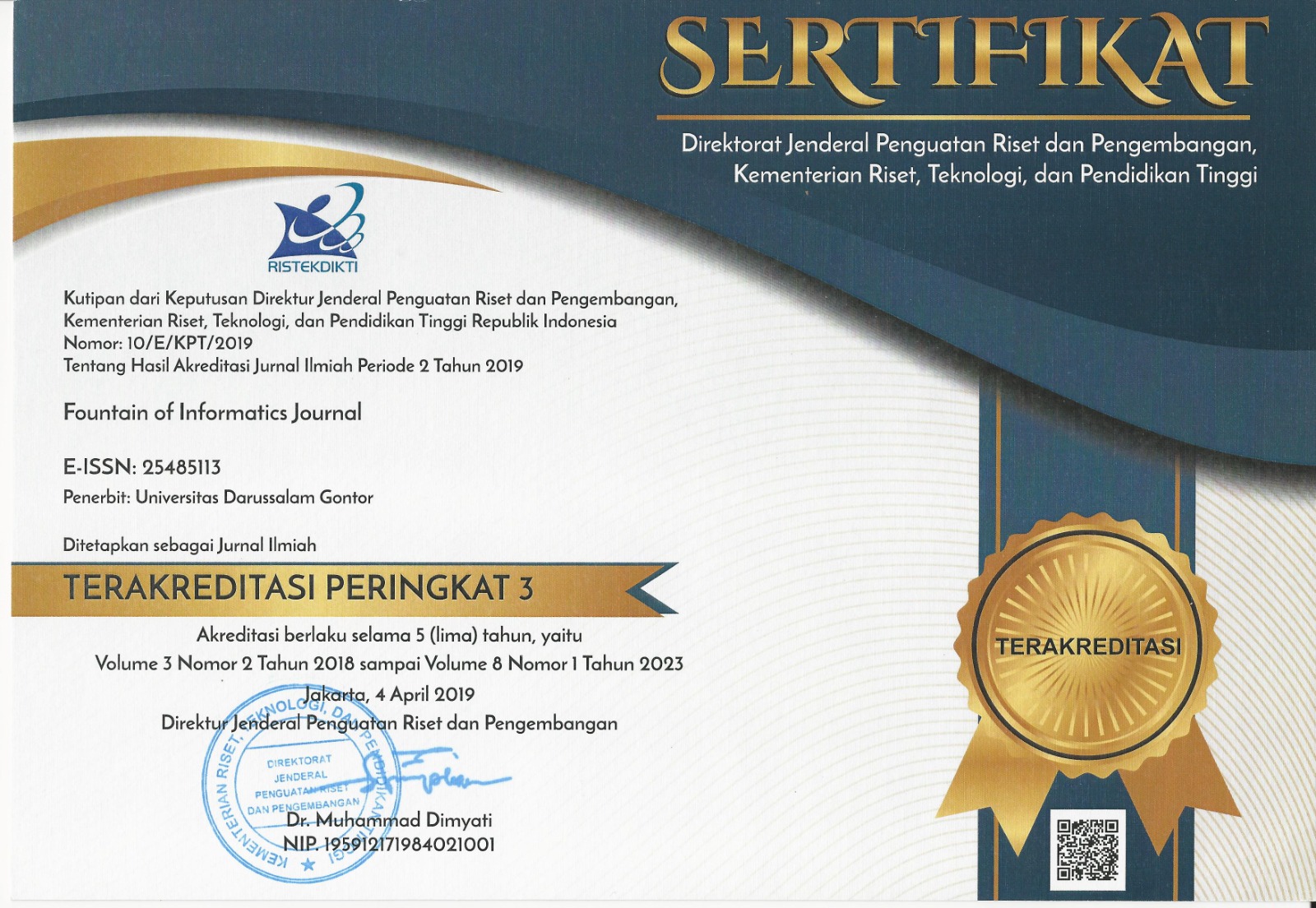Perbandingan Akurasi Algoritma Naïve Bayes Dan Support Vector Machine Dalam Analisis Sentimen Pengguna Twitter Terhadap Aplikasi Sirekap
Abstract
Abstrak Dalam Pemilu tahun 2024, Aplikasi Sirekap memegang peran penting sebagai platform yang bertanggung jawab atas rekapitulasi dan publikasi hasil penghitungan suara, serta berkontribusi besar dalam menjaga transparansi dan akuntabilitas proses pemilu. Meskipun perannya sangat vital, aplikasi ini masih menghadapi sejumlah tantangan, salah satunya terkait dengan verifikasi data. Masalah verifikasi ini menyebabkan penumpukan data yang berujung pada penutupan sementara diagram hasil pemilihan oleh KPU. Kondisi ini memicu berbagai respons dan opini dari masyarakat, terutama terkait keandalan aplikasi. Penelitian ini bertujuan untuk menganalisis sentimen pengguna terhadap kinerja Aplikasi Sirekap serta membandingkan performa dua algoritma, yaitu Naive Bayes dan Support Vector Machine (SVM), dalam analisis sentimen. Berdasarkan hasil penelitian, terungkap bahwa algoritma SVM dengan Kernel RBF menunjukkan akurasi yang lebih tinggi, mencapai 84,15%, dibandingkan dengan Multinomial Naive Bayes yang hanya mencapai 77,64%. Hal ini menggarisbawahi keunggulan SVM dalam analisis sentimen. Di samping itu, penelitian ini menekankan pentingnya optimalisasi fitur dalam Aplikasi Sirekap untuk meningkatkan efektivitas, memastikan kinerja yang lebih baik, dan meraih respons yang lebih positif dari masyarakat. Kata kunci: Aplikasi Sirekap, Pemilu, Analisis Sentimen, Naïve Bayes, Support Vector Machine (SVM)  Abstract [Comparison Of The Accuracy Of The Naïve Bayes Algorithm And Support Vector Machine In Analyzing Twitter User Sentiment Towards The Sirekap Application] In the 2024 General Election, the Sirekap App plays an important role as the platform responsible for the recapitulation and publication of vote count results, and contributes greatly to maintaining transparency and accountability of the electoral process. Despite its vital role, the app still faces a number of challenges, one of which is related to data verification. This verification issue caused a buildup of data that led to the temporary closure of the election results diagram by the KPU. This condition triggered various responses and opinions from the public, especially regarding the reliability of the application. This study aims to analyze user sentiment towards the performance of Sirekap Application and compare the performance of two algorithms, namely Naive Bayes and Support Vector Machine (SVM), in sentiment analysis. Based on the results, it was revealed that the SVM algorithm with RBF Kernel showed higher accuracy, reaching 84.15%, compared to Multinomial Naive Bayes which only reached 77.64%. This underscores the superiority of SVM in sentiment analysis. In addition, this research emphasizes the importance of feature optimization in Sirekap App to increase effectiveness, ensure better performance, and gain more positive responses from the community. Keywords: Sirekap App, Election, Sentiment Analysis, Naïve Bayes, Support Vector Machine (SVM)Downloads
Submitted
Published
Issue
Section
License
Copyright (c) 2024 Gabriel Natalianus Viko Kurniawan, Neneng Rachamlia Feta

This work is licensed under a Creative Commons Attribution-NonCommercial-ShareAlike 4.0 International License.
Please find the rights and licenses in the Fountain of Informatics Journal (FIJ). By submitting the article/manuscript of the article, the author(s) agree with this policy. No specific document sign-off is required.
1. License
The non-commercial use of the article will be governed by the Creative Commons Attribution license as currently displayed on Creative Commons Attribution-NonCommercial-ShareAlike 4.0 International License.Â
2. Author(s)' Warranties
The author warrants that the article is original, written by the stated author(s), has not been published before, contains no unlawful statements, does not infringe the rights of others, is subject to copyright that is vested exclusively in the author, and free of any third party rights, and that any necessary written permissions to quote from other sources have been obtained by the author(s).
3. User/Public Rights
FIJ's spirit is to disseminate articles published are as free as possible. Under the Creative Commons license, FIJ permits users to copy, distribute, display, and perform the work for non-commercial purposes only. Users will also need to attribute authors and FIJ on distributing works in the journal and other media of publications. Unless otherwise stated, the authors are public entities as soon as their articles got published.Â
4. Rights of Authors
Authors retain all their rights to the published works, such as (but not limited to) the following rights;
- Copyright and other proprietary rights relating to the article, such as patent rights,
- The right to use the substance of the article in own future works, including lectures and books,
- The right to reproduce the article for own purposes,
- The right to self-archive the article (please read out deposit policy),
- The right to enter into separate, additional contractual arrangements for the non-exclusive distribution of the article's published version (e.g., post it to an institutional repository or publish it in a book), with an acknowledgment of its initial publication in this journal (Jurnal Optimasi Sistem Industri).
5. Co-Authorship
If the article was jointly prepared by more than one author, any authors submitting the manuscript warrants that he/she has been authorized by all co-authors to be agreed on this copyright and license notice (agreement) on their behalf, and agrees to inform his/her co-authors of the terms of this policy. FIJ will not be held liable for anything that may arise due to the author(s) internal dispute. FIJ will only communicate with the corresponding author.
6. Royalties
Being an open accessed journal and disseminating articles for free under the Creative Commons license term mentioned, author(s) aware that FIJ entitles the author(s) to no royalties or other fees.Â
7. Miscellaneous
FIJ will publish the article (or have it published) in the journal if the article’s editorial process is successfully completed. FIJ's editors may modify the article to a style of punctuation, spelling, capitalization, referencing, and usage that deems appropriate. The author acknowledges that the article may be published so that it will be publicly accessible and such access will be free of charge for the readers as mentioned in point 3.










